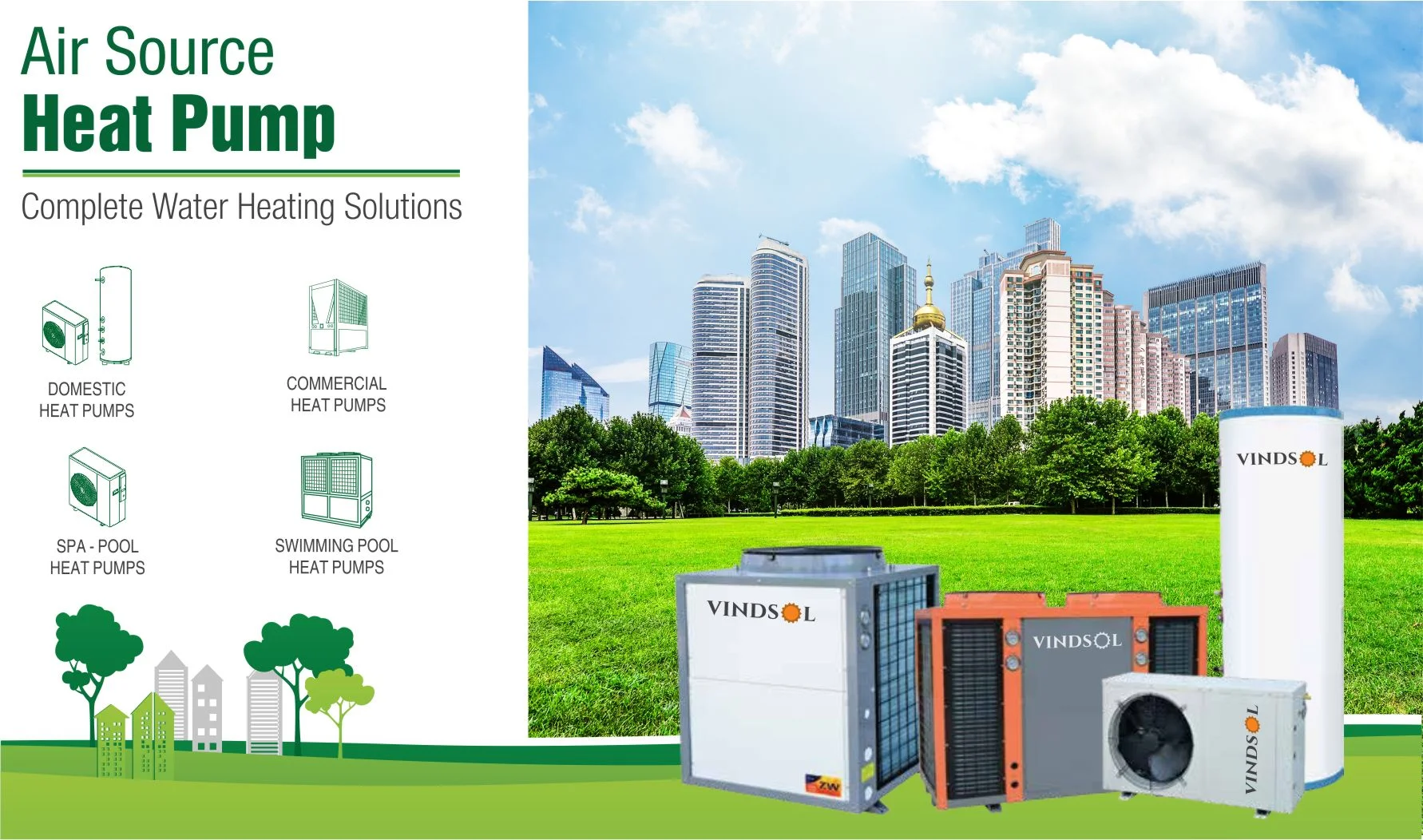Heat pump converts the sensible heat in the ambient natural air into heat energy and uses to heat the water. In this aspect, this system can be classified as a Renewable Energy source as the heat in the ambient air is replenished by the Sun.
Introduction – Heat Pump Technology
Introduction
Heat pump water heaters are a highly efficient and cost-effective way to heat water in your home or business. They work by using electricity to move heat from the air or ground into your water supply, rather than generating heat directly. This makes them much more energy efficient than traditional electric water heaters, as well as more environmentally friendly.
How Heat Pump Water Heaters Work
Heat pump water heaters work by using a refrigerant to absorb heat from the air or ground, and then transfer that heat into the water supply. The heat pump itself is made up of several components, including an evaporator, compressor, and condenser.
The evaporator absorbs heat from the air or ground, and the compressor then increases the pressure and temperature of the refrigerant, causing it to turn into a hot gas. This hot gas is then passed through the condenser, where it gives up its heat to the water supply.
Advantages of Heat Pump Water Heaters
There are many advantages to using a heat pump water heater over a traditional electric water heater. Some of the main benefits include:
- Increased energy efficiency: Heat pump water heaters are much more energy efficient than traditional electric water heaters, as they use less electricity to heat the same amount of water.
- Lower operating costs: Because heat pump water heaters are more energy efficient, they can save you money on your energy bills in the long run.
- Environmentally friendly: Heat pump water heaters are much more environmentally friendly than traditional electric water heaters, as they produce fewer greenhouse gas emissions.
- Longer lifespan: Heat pump water heaters typically have a longer lifespan than traditional electric water heaters, so they can save you money in the long run by requiring fewer replacements.
- Quiet operation: Heat pump water heaters are typically much quieter than traditional electric water heaters, so they won’t disturb you or your neighbors.
How to Choose the Right Heat Pump Water Heater
When choosing a heat pump water heater, there are a few important factors to consider. Some of the main things to think about include:
- Size: Make sure to choose a heat pump water heater that is the right size for your home or business. If it’s too small, it won’t be able to keep up with your hot water needs, and if it’s too large, it will be more expensive to operate.
- Energy efficiency: Look for a heat pump water heater with a high energy efficiency rating to save money on your energy bills in the long run.
- Noise level: Make sure to choose a heat pump water heater that runs quietly, so it won’t disturb you or your neighbors.
- Price: Compare the prices of different heat pump water heaters to find the best deal.
Conclusion
Heat pump water heaters are a highly efficient and cost-effective way to heat water in your home or business. They work by using electricity to move heat from the air or ground into your water supply, rather than generating heat directly. This makes them much more energy efficient than traditional electric water heaters, as well as more environmentally friendly. When choosing a heat pump water heater, be sure to consider factors such as size, energy efficiency, noise level, and price.
